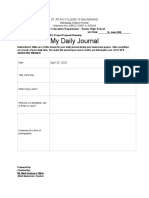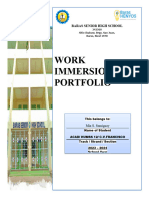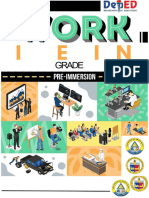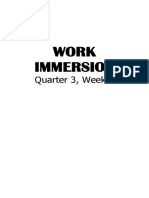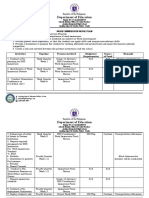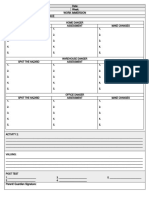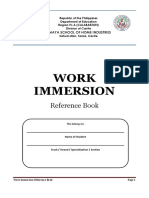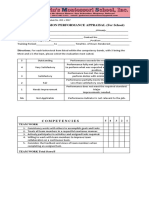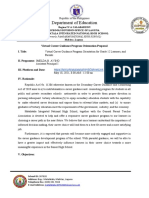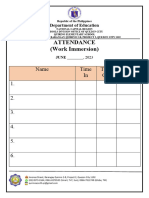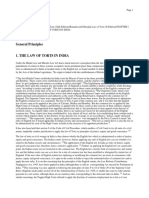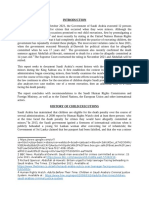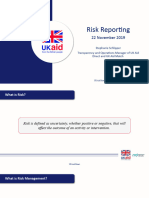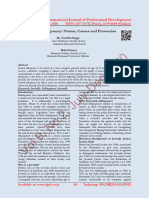0% found this document useful (0 votes)
481 views4 pagesWork Immersion Module 4
The document discusses confidentiality in the workplace. It begins by explaining how maintaining confidentiality is important both legally and ethically. Without proper confidentiality measures, sensitive customer, client, employee and company information is at risk.
It then discusses how to maintain confidentiality. Employers should create clear policies and train employees on what information is confidential and the consequences for breaches. Technical security measures like passwords and encryption help protect electronic information. Proper disposal of documents ensures information is not leaked.
Finally, it outlines some key UK acts related to data protection and privacy, including the Data Protection Act which governs handling of personal information stored on computers. Maintaining confidentiality is crucial for businesses to protect themselves and their
Uploaded by
pattiffanylorenzo278Copyright
© © All Rights Reserved
We take content rights seriously. If you suspect this is your content, claim it here.
Available Formats
Download as DOCX, PDF, TXT or read online on Scribd
0% found this document useful (0 votes)
481 views4 pagesWork Immersion Module 4
The document discusses confidentiality in the workplace. It begins by explaining how maintaining confidentiality is important both legally and ethically. Without proper confidentiality measures, sensitive customer, client, employee and company information is at risk.
It then discusses how to maintain confidentiality. Employers should create clear policies and train employees on what information is confidential and the consequences for breaches. Technical security measures like passwords and encryption help protect electronic information. Proper disposal of documents ensures information is not leaked.
Finally, it outlines some key UK acts related to data protection and privacy, including the Data Protection Act which governs handling of personal information stored on computers. Maintaining confidentiality is crucial for businesses to protect themselves and their
Uploaded by
pattiffanylorenzo278Copyright
© © All Rights Reserved
We take content rights seriously. If you suspect this is your content, claim it here.
Available Formats
Download as DOCX, PDF, TXT or read online on Scribd
/ 4



